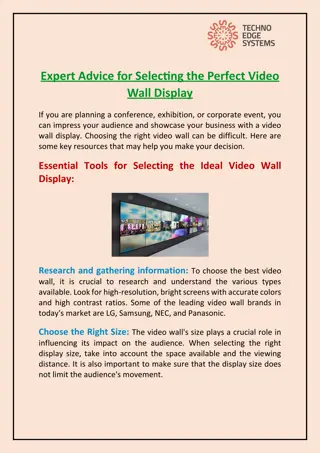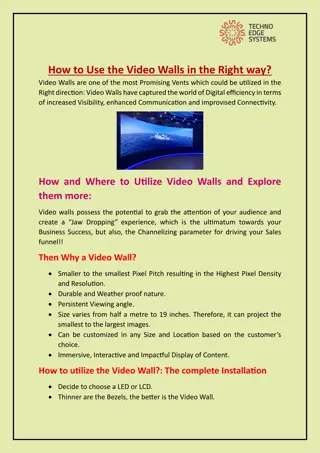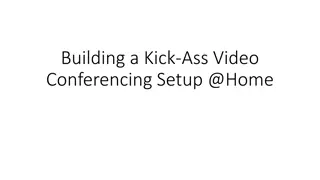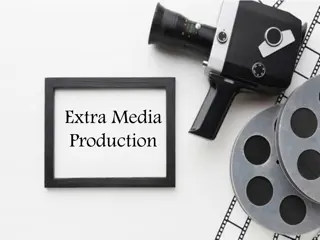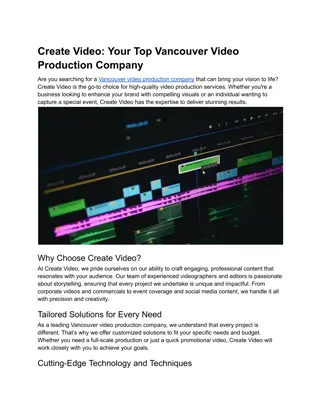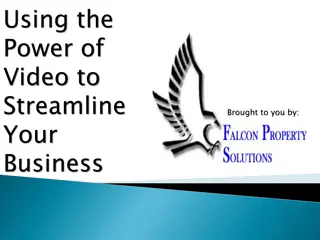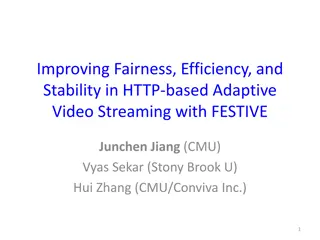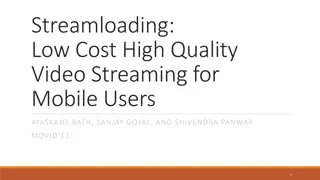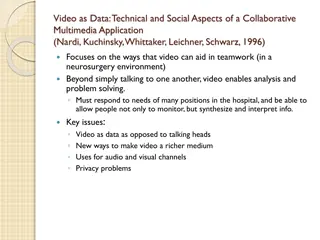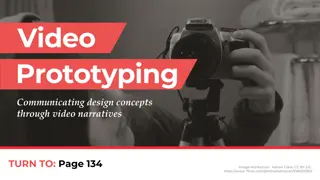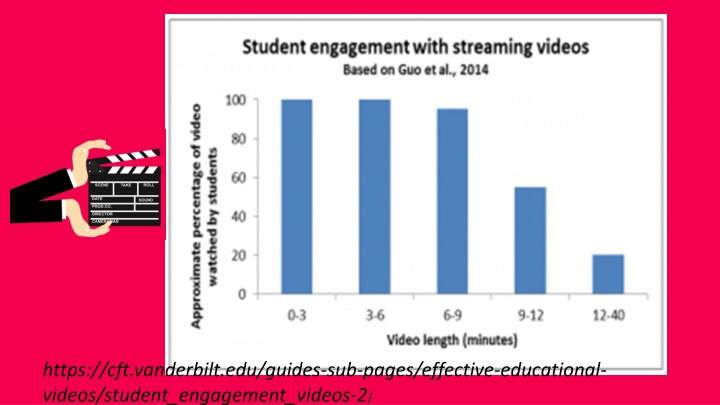
Effective Strategies for Creating Engaging Educational Videos
Discover best practices for optimizing student engagement in educational videos with insights on video length, segmentation, and delivery. Learn how to chunk content effectively, keep videos succinct, and humanize your presence for enhanced learning experiences.
Download Presentation

Please find below an Image/Link to download the presentation.
The content on the website is provided AS IS for your information and personal use only. It may not be sold, licensed, or shared on other websites without obtaining consent from the author. If you encounter any issues during the download, it is possible that the publisher has removed the file from their server.
You are allowed to download the files provided on this website for personal or commercial use, subject to the condition that they are used lawfully. All files are the property of their respective owners.
The content on the website is provided AS IS for your information and personal use only. It may not be sold, licensed, or shared on other websites without obtaining consent from the author.
E N D
Presentation Transcript
https://cft.vanderbilt.edu/guides-sub-pages/effective-educational-https://cft.vanderbilt.edu/guides-sub-pages/effective-educational- videos/student_engagement_videos-2/
How long should a video be? Generally speaking, for video online, the magic number for optimal engagement appears to be between 2 to 5 minutes. Studies examining engagement with YouTube videos consistently show solid viewership through the first 2 minutes of a video, a gradual decline in engagement after 2 minutes, and a sharper drop after 5 minutes. https://www.panopto.com/blog/how-long-should- training-videos-be/
https://blog.edx.org/optimal-video-length-student-engagement/https://blog.edx.org/optimal-video-length-student-engagement/
Chunk it into six-minute segments! Start with topic and think about how to break down material Muscular system has three parts skeletal, cardiac, and smooth muscles Basic math add, subtract, multiply, and divide XYZ war history and causes, triggers, battles/key events, outcome and results Labor and delivery: early labor/admittance to maternity ward, advanced labor, delivery, post-partum Investigation: collection of information, validation, and preservation Think natural breaks in the material places to ask questions, etc.
Dont worry about making a mistake. Students like you to be human.
Think reuse. Keep semester- and section-specific material separate from course material videos
Videos can be linked in multiple classes
Make videos topic-based, not chapter-based makes reusing easier!
Add a welcome video good practice and creates a better course atmosphere
Name the video appropriately Causes of WWII Causes of WWII, not Week 3 Video
Breaking material into chunks makes updating easier
the most boring thing that I could think of to do...a talking head: a middle-class white male in a suit, talking to them in a really boring way about music videos Rocky Morton, creator of Max Headroom
Think of worksheets (or embedded questions) to facilitate active learning
Think complementary resource, not redundant materials. Explain the tricky points and emphasize the main points
Utilize both headshots and imagery (just don t forget to explain the images!)
Caption Caption Caption
Include a two-three sentence intro to the material. Include such phrases as pay attention to , you ll see ___again, to cue the viewer to critical info


